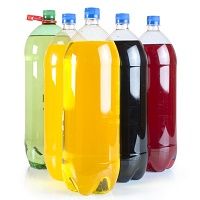Sugary Drink Consumption Sparks Young Girls' Early Periods
Increased consumption of sugary drinks has been found to potentially trigger early onset of menstrual cycles in young girls.

Increased consumption of sugary drinks has been found to potentially trigger early onset of menstrual cycles in young girls.
Published in the journal Human Reproduction, the study involved Harvard University researchers who observed nearly 5,583 girls (9-14 years old) to investigate the relationship between sugary drinks and the age at which girls have their first period.
The researchers used questionnaires to ask the girls about their diet at several points during the study, including how frequently they drank a serving of different types of drinks: one can or glass of soda or diet soda, one glass of non-carbonated fruit drinks, or one glass, can or bottle of sweetened ice tea.
The researchers found those who drank more than 1.5 sugary drinks a day had their first period on average at 12.8 years old, and those who drank less sugary — 2 or fewer drinks each week – started a bit later, on average at age 13.
While this doesn’t sound like much of a difference, experts warn that starting puberty earlier, even by just a few months, can be dangerous.
The findings indicated the significance in curbing sugary drink consumption: Not only does it contribute to the increased incidence of childhood obesity, but also early onset menstrual cycles had been linked to an increased risk of breast cancer during adulthood.
Researchers noted high glycemic foods like sugary drinks could cause a rapid increase in insulin concentrations in the body, which can lead to a high concentration of sex hormones. Alterations to the concentration of sex hormones had been linked to periods beginning earlier in life.
Karin Michels, ScD, PhD, Associate Professor at Harvard Medical School, Boston, MA, who led the research, said, “Our study adds to increasing concern about the wide-spread consumption of sugar-sweetened drinks among children and adolescents in the USA and elsewhere. The main concern is about childhood obesity, but our study suggests that age of first menstruation (menarche) occurred earlier, independently of body mass index, among girls with the highest consumption of drinks sweetened with added sugar. These findings are important in the context of earlier puberty onset among girls, which has been observed in developed countries and for which the reason is largely unknown.”
Researchers noted that a one-year decrease in age at menarche is estimated to increase the risk of breast cancer by 5%, thus, a 2.7-month decrease in age at menarche only modestly impacts breast cancer risk.
Professor Michels concluded, "Our findings provide further support for public health efforts to reduce the consumption of sugary drinks."